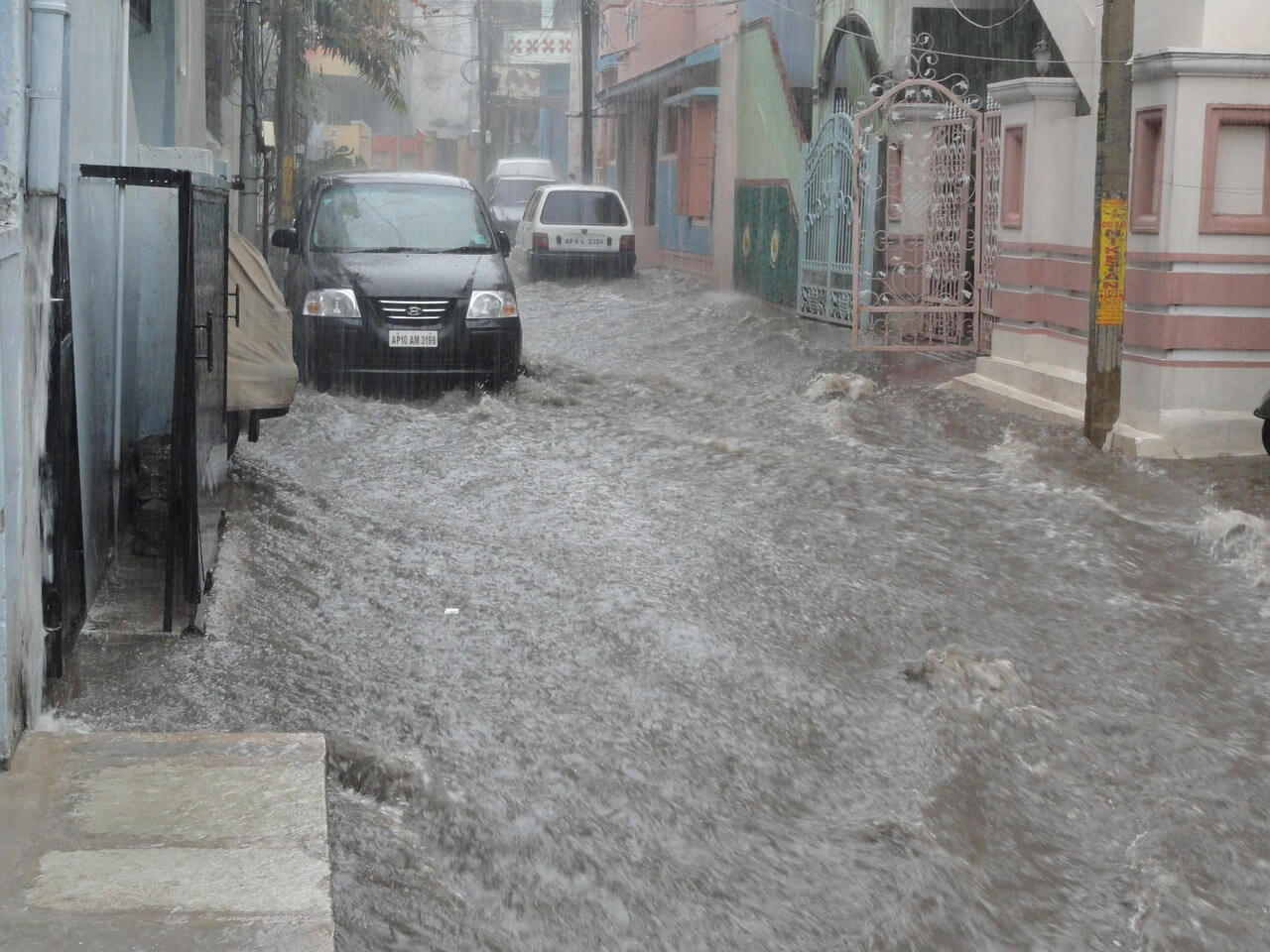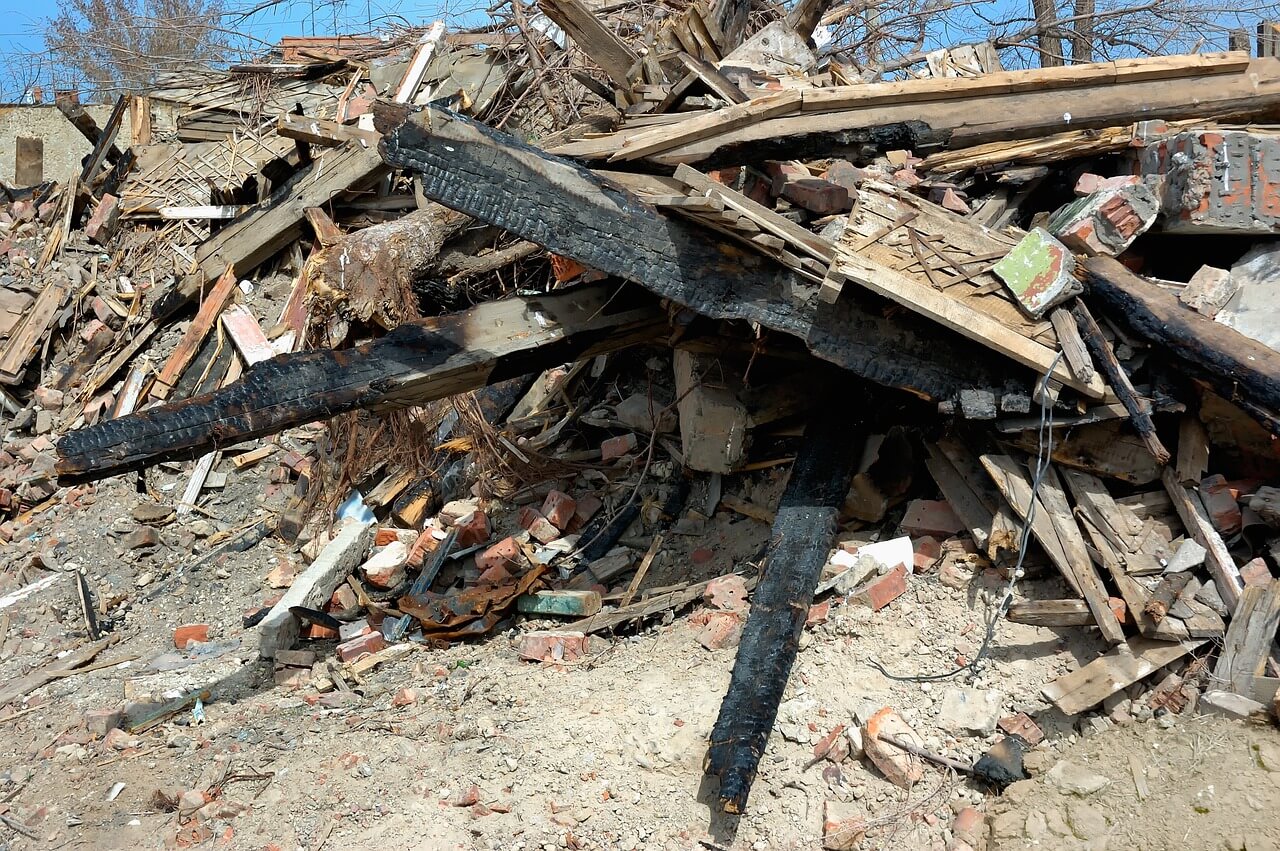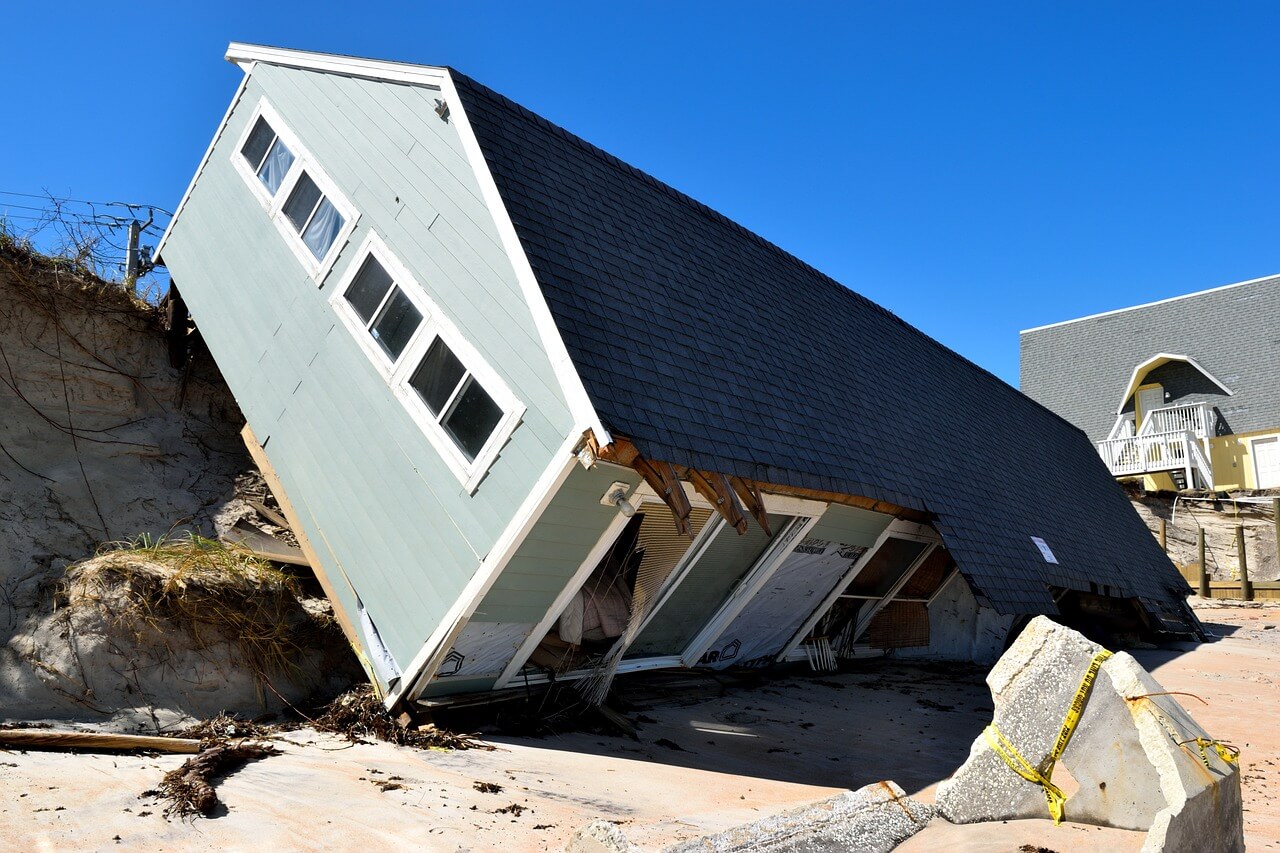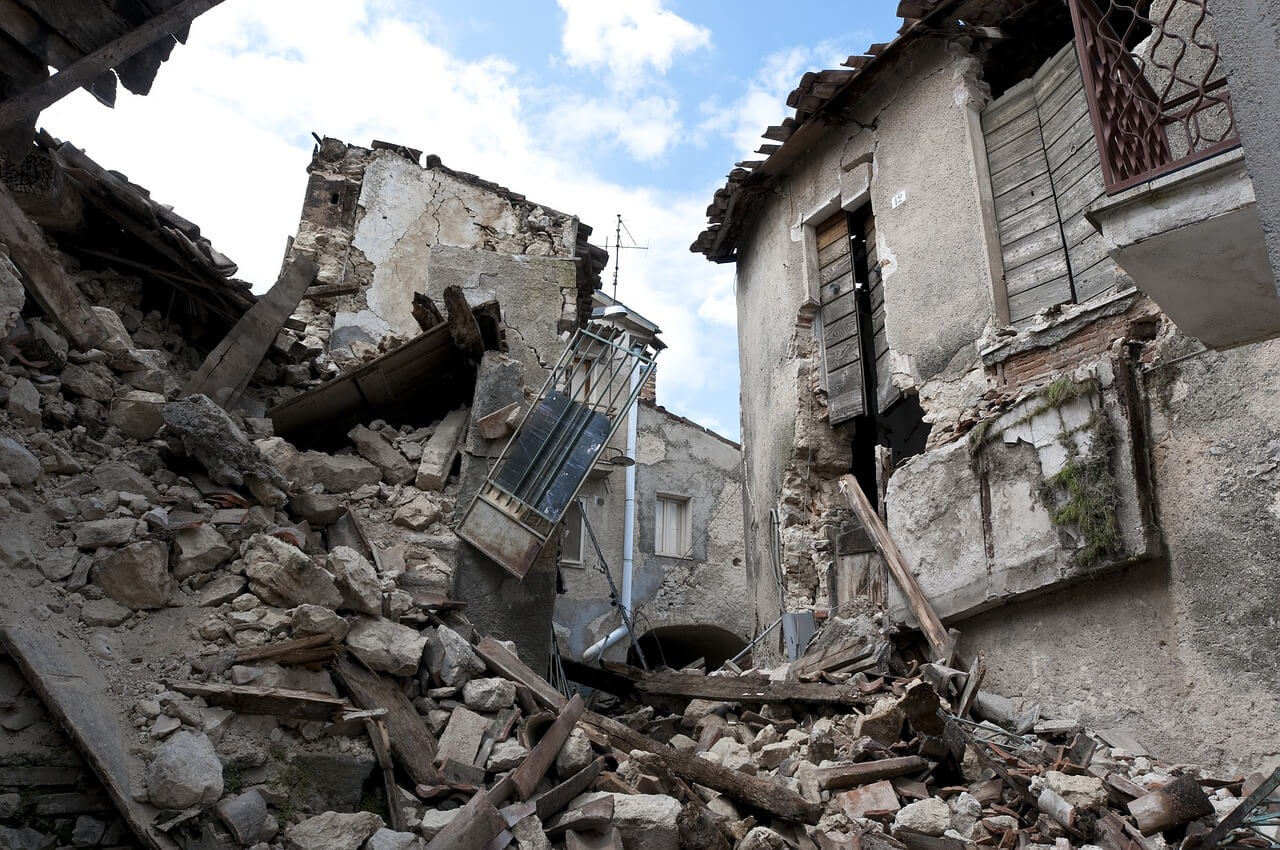
Natural disasters and the right insurance to protect the house, car, agricultural crops
The extreme phenomena of nature can have an enormous impact on human communities, regardless of whether it is about the loss of human lives, about injuries, destruction of homes or various buildings, about economic or social losses. For this reason, it is important to know in detail the risks associated with natural disasters and what measures must be taken in order to significantly reduce their impact on human society as a whole.
An essential tool in this regard is insurance, which provides financial protection in the event of unforeseen events. This will guarantee the receipt of financial compensation, the reduction of financial stress, but also protection against major risks, which means that it must be chosen very carefully, comparing the offers and reading the terms and conditions of the policy.
In the following article you will discover what natural disasters are, what are their effects on people’s lives, what phenomena are considered as such and what are the benefits of a suitable insurance for the optimal protection of the house, car and even agricultural crops. You will also find some important criteria to be able to choose the insurance needed depending on the situation, as well as some useful tips.
1. Natural disasters – definition and general information

Natural disasters are those events out of the ordinary, which are caused by phenomena such as earthquakes, floods, wildfires, hurricanes, etc. and which lead to numerous material damages or loss of human life. Unfortunately, due to climate change, such events will occur more and more often, which makes it necessary to know them, as well as how they can be prevented.
1.1. The effects of natural disasters on people’s lives
Natural disasters usually have disastrous effects on people’s lives. Thus, because of them, there are losses of human lives or more or less serious injuries, as well as the occurrence of deep psychological traumas, the effects of which will be observed over time. Among the social effects are the division of families and communities, the growth of poverty and inequality, the appearance of all kinds of uncertainties related to the future or health problems (physical and mental).
Apart from this aspect, the destruction of homes or infrastructure can also be mentioned, which leads to the loss of shelter or even the job, the impossibility of accessing absolutely necessary services or very serious economic disruptions. The costs for the reconstruction can be very high, and the state will have to invest impressive sums to restore everything, thus putting a huge pressure on the budget.
Another effect of natural disasters is the fact that part of the population affected by these phenomena may lose their homes and be forced to move to other places, even as refugees. Sometimes social and economic problems were registered, because, not infrequently, the integration of people in the new communities is quite difficult, their vulnerability in such difficult conditions being very high.
Natural disasters can have serious consequences on the natural environment, not only on human society. Some examples in this regard are the destruction of the natural habitats of animals, the pollution of the soil, air and water, the disappearance of biodiversity.
1.2. What phenomena are considered natural disasters in the world
The phenomena considered natural disasters are:
- meteorological;
- geological;
- others.
Here are some examples of natural disasters:
Meteorological phenomena considered natural disasters can include hurricanes or tropical cyclones, floods, heat waves, droughts, tornadoes, hail. All these events can cause severe damage to people, property, infrastructure. A problem that people can face if such phenomena occur is the damage to agricultural crops (drought, floods, hail) or the partial or total destruction of cars (hail, floods, tornadoes, hurricanes).
Geological phenomena that can be considered natural disasters are earthquakes, volcanic eruptions, landslides or tsunamis (in Romania, the last strong earthquake recorded in the Black Sea was 7.2 on the Richter scale, in 1901, and generated a 4-5 meter high wave that displaced banks, destroyed houses, leaving behind a very frightened population).
There are other phenomena that can be included in the category of those that can cause natural disasters. An example rain in this sense is the vegetation fire. When the fire is out of control, it leads to the destruction of forests, agricultural crops, natural habitats, which greatly affects the quality of breathable air and, of course, biodiversity. We can also mention the pandemic (of any type) that allows the rapid spread of infectious diseases with impressive effects: loss of human life, numerous illnesses, changes in human activity, economic disturbances, etc.
2. What is natural disaster insurance

This type of policy is also called insurance in case of catastrophe or insurance against natural risks. Specialists are of the opinion that in order to have a carefree life in Romania, it is necessary to take out such insurance, because, practically, it will not be necessary for the owners of houses, agricultural crops or cars to pay for repairs from their own wallets. Unfortunately, Romania is not immune to such phenomena, so fires, earthquakes, floods, etc. can occur at any time. Catastrophe insurance protects the insured and has as its main characteristics the specific coverage, the coverage limit, the insurance premium, deductions and various conditions.
Among the types of policies that cover damage related to natural disasters are insurance for legal entities, ideal for those companies that want to protect themselves against financial losses which are caused by events of this kind (floods, earthquakes, etc.). Thus, in order to build a stable business environment, it is recommended to conclude agricultural insurance or construction risk insurance, both offering the best solutions, based on risks and needs. Those who want to protect their home or car against natural disasters can consider concluding home insurance (successfully covers damages from different sources ) or CASCO insurance (has multiple benefits for drivers).
2.1. What are the benefits of natural disaster insurance
Taking out insurance against natural risks is very important. Unfortunately, most of the time people do not realize this until they experience unforeseen events and face huge damages, which require large financial investments, which they often cannot afford. Among the advantages of such a policy are:
-
- First of all, it is about the financial protection it offers to all those who choose to conclude it. In the event that such phenomena occur that cause greater or lesser damage, the insurance successfully covers the costs of repairs;
- Secondly, you get the certainty that the investment made in housing, cars, agricultural crops is covered even if unwanted events occur. Regardless of the situation, the insured maintains his financial stability;
- Thirdly, such insurance greatly reduces reconstruction or repair times, which contributes to returning as quickly as possible to the normality before the occurrence of the natural phenomenon;
- Fourthly, the insurance can cover the additional expenses that the insured may incur in terms of the immediate needs that he has as a result of the event (for example, food, accommodation, rent, etc.).
2.2. How to choose the most suitable insurance against natural disasters
The wide variety of insurance against natural disasters existing on the Romanian market makes the choice somewhat difficult. For this reason, it is advisable to consider the advice of specialists and some essential criteria, which can make the difference, before any purchase.
- First, the ris must be identified area-specific cures, because they can vary depending on this aspect. If only earthquakes, fires, storms are to be considered, the insurance must specify this aspect. The same will happen if the area is much more exposed to hurricanes, tsunamis or tornadoes;
- We then move on to estimating the value of the property of the future insured. Its value must be calculated correctly, so that the coverage is appropriate to the needs. It is not at all advisable to enter a lower value, because the amounts obtained in case of damages will also be lower;
- The level of coverage must be one that fits the needs and the budget. This limit must be sufficient to cover the need for protection;
- The deduction is the fixed amount that is deducted from the compensation paid by the insurance company in case of damage. As a rule, it can discourage the request for compensation only for minor damages. Thus, a large deduction means a small insurance premium and a larger contribution from the insured in case of damage;
- Comparing the existing offers on the market is vital for those who want to obtain the best conditions and the correct prices. Quality matters a lot, however, so this aspect will be taken into account, more than the price.
3. Useful tips for protecting against natural disasters in Romania

Protection against natural disasters must be considered by any person, enterprise, firm, public or private institution, etc., because the damage caused by these phenomena is, as a rule, very large. This can be seen by reviewing the recent natural disasters in the world and their impressive effects (the earthquake in Turkey and Syria, hurricane Ian, the floods in Pakistan, the floods in Australia, the drought in Europe in 2022, the wildfires in California, from 2021, the Covid-19 pandemic and so on).
Adequate preparation has an important place in protecting against natural disasters. Depending on the area, the risks of natural disasters must be well known and a correct emergency plan will be created (it must include evacuation routes, assembly points, communication methods, etc.). An emergency kit must be at hand, including water, food, medicine, first aid kit, flashlight, batteries, etc. For the house, the consolidation of the structure of the house will be considered, so that it is more resistant to the weather, earthquakes, etc. Last but not least, the securing of heavy objects inside, the installation of warning systems and the preservation of water reserves must be taken into account.
Education about natural disasters and the measures to be taken is important. Thus, a training course can be taken in case of a disaster that occurs in the community, with the aim of understanding exactly what it is about and what needs to be done in this situation. Information on the Internet is mandatory for everyone, because here there is a lot of useful knowledge and great help when needed. Participating in some training exercises organized at the local level or at the workplace is useful, assuring the person in question that he will be prepared to react correctly in the event of the occurrence of such natural disasters. The information about the local emergency plans in case of natural disasters must be done right from the beginning in order to be able to find out what the evacuation routes are, the safe gathering places after the event and to receive all the necessary data and instructions.
Taking out the insurance with an insurance company recognized for its very good general reputation is more than indicated. This policy, however, must adequately meet the protection needs of the insured (housing, car, agricultural crops, etc.). The coverage must be in line with the value of his property, so that he can receive the compensation he needs when the need arises. Also, the insured must check carefully before concluding the insurance which natural disasters are covered, otherwise he will not receive the payment he needs.
In conclusion, you never know when such natural catastrophes may occur, so it is very good to pay more attention to protection against the effects of these unwanted events, regardless of whether it is about concluding an appropriate insurance, about preparing an emergency plan or about the correct education in the direction of taking the appropriate measures to react as much as possible good.

